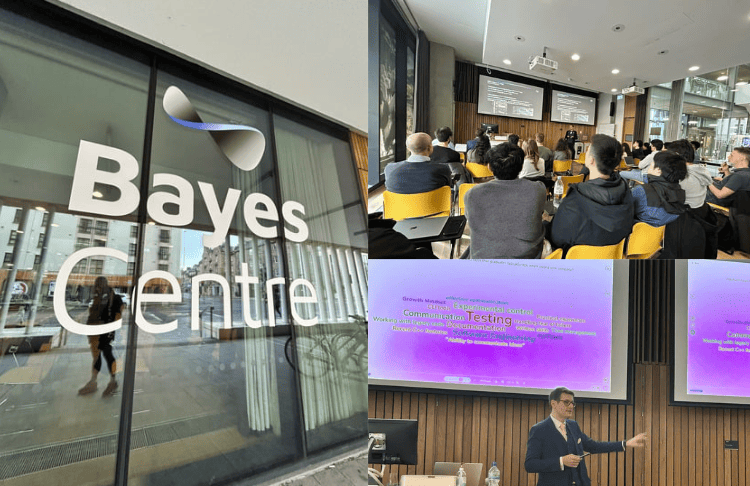In the world of high-performance computing (HPC), technical skills have always been highly sought after. Yet, as many graduates find themselves struggling to secure roles post-graduation, it’s becoming increasingly clear that soft skills play a crucial role in career success. Recently, the Flight Crew joined other industry leaders in Edinburgh, Scotland to discuss the importance of developing these soft skills as part of the EPCC’s initiative to enhance their HPC teaching initiatives.
The Education Team at EPCC launched their inaugural HPC Career and Networking Event on February 23, 2024, bringing together UK industry leaders to explore the evolving landscape of education in HPC. The resounding message from the event? Soft skills are just as vital as the technical expertise honed within the halls of the University of Edinburgh.
The morning session, led by Dr. Ludovic Capelli, consisted of interactive discussions on the skills the industry leaders most wished they had developed before starting in the field of supercomputing. While topics like version control, legacy code, and the enduring relationship with FORTRAN were touched upon, the real focus was on the desire to have had more time to develop skills in communication and teamwork.
“
You can have brilliant ideas, but if you can’t get them across, your ideas won’t get you anywhere.
— Lee Iacocca
Dr. Capelli emphasised that he stresses the importance of group work at EPCC, despite encountering resistance when the projects are assigned. Industry experts took the time to contribute to Dr. Capelli’s arguments for regular group work, highlighting that real-world skills are cultivated through these projects, where collaboration, resilience, and time management are paramount.
Despite this, solo projects are equally significant and should never be discounted. Industry participants noted that involvement in open-source environments or contributing to existing projects fosters sharper communication skills. By building upon existing frameworks, individuals gain valuable experience in documentation, version control, and collaborative research.
The afternoon session was dedicated to students pursuing Masters or PhDs in supercomputing. Industry leaders shared insights from their careers and showcased their respective companies. It was inspiring to meet talented students with diverse aspirations, ranging from technical roles to those blending technical and business expertise. Our conversations reinforced the notion that there’s no predetermined path to success in HPC.
We extend our gratitude to the EPCC team, particularly Dr. Capelli, Weronika Filinger, and Ben Morse, for the invitation to participate in this enriching event. We hope that such gatherings become regular, providing an avenue for industry leaders to connect and mentor the next generation of supercomputing trailblazers.


